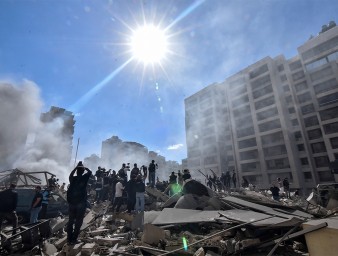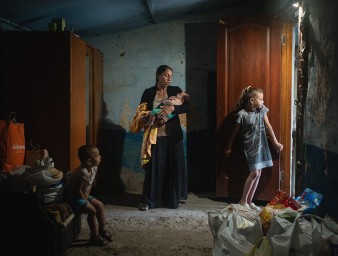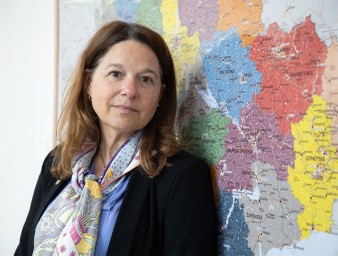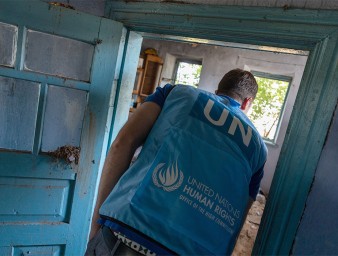Refugees from Ukraine receive support in Moldova
25 October 2024

From her bedroom window, Liubov can see the vines and rosebushes of the garden, one of the few distractions in her day. The view also helps the 83-year-old woman forget the air raid sirens and explosions that still echo in her head since she fled Ukraine.
“People are very hospitable here. It is quiet and I receive my medicines, but I miss my flat in Odesa,” she said. “There are days when I feel like packing and going back, but I am too afraid.”
Through a project led by UN Human Rights, Liubov and hundreds of other marginalized refugees from Ukraine get better access to basic services in Moldova, including medicines, care, and assistive devices for children and adults with disabilities. Liubov has diabetes and cannot get out of bed without help.
With funding from the European Commission’s Civil Protection and Humanitarian Aid Operations department (DG ECHO), the program aims to protect the human rights of refugees with special needs such as older persons, persons with disabilities, children, single mothers and members of the Roma community.
“Every refugee has a story of loss and trauma behind them,” said Bea Ferenci, head of UN Human Rights Moldova. “This initiative seeks to improve their access to services and assistance, and also guarantee the human right of all refugees to equality and non-discrimination.”
Vital support
UN Human Rights has provided support to refugees fleeing Ukraine to Moldova since the full-scale invasion of Ukraine by the Russian Federation on 24 February 2022. Nearly one million people displaced from Ukraine have arrived in Moldova, and approximately 124,000 remain in the country, seeking safety from an armed conflict that has entered its third year.
Government figures show that about 80 percent of those arriving are women, children and older persons. They are exposed to different risks, including finding housing, accessing health care and falling into poverty. Many refugees have used up their savings and increasingly rely on humanitarian support to meet basic needs, according to a recent study from the Norwegian Refugee Council.
As her health worsened and air raids kept her up at night, Liubov packed a few belongings and left on a bus for Moldova accompanied by a roommate. Liubov was too sick to walk, and so Moldovan border guards carried her on a wooden chair across the border. Today she lives in a rented house in Basarabeasca in southern Moldova. With the support of a UN Human Rights officer, Liubov began receiving diabetes medication, supplied by a local NGO.
“
This initiative is about giving dignity to refugees.
“
BEA FERENCI, HEAD OF UN HUMAN RIGHTS MOLDOVA
Since it was started in June 2023, the UN Human Rights project has supplied diabetes and cancer medicines, diapers, walking aids, wheelchairs and eyeglasses, and other assistive devices through a referral system that connects refugees with Moldovan and international NGOs.
The project covers all administrative regions of Moldova, including the left bank of the Nistru/Dniester river. During field visits to humanitarian centers, distribution points and refugee accommodation centers, UN Human Rights officers identify individuals at risk who require specialized services, support, or assistance, for referral to relevant service providers.
UN Human Rights Moldova has conducted interviews with 2,130 refugees from Ukraine and 546 members of host communities, collecting data on their human rights situation and experience of discrimination.
This allows the Office to produce comprehensive and disaggregated data of various refugee groups, including marginalized communities, said Olha Florynska, a UN Information Management and Reporting officer in Moldova.
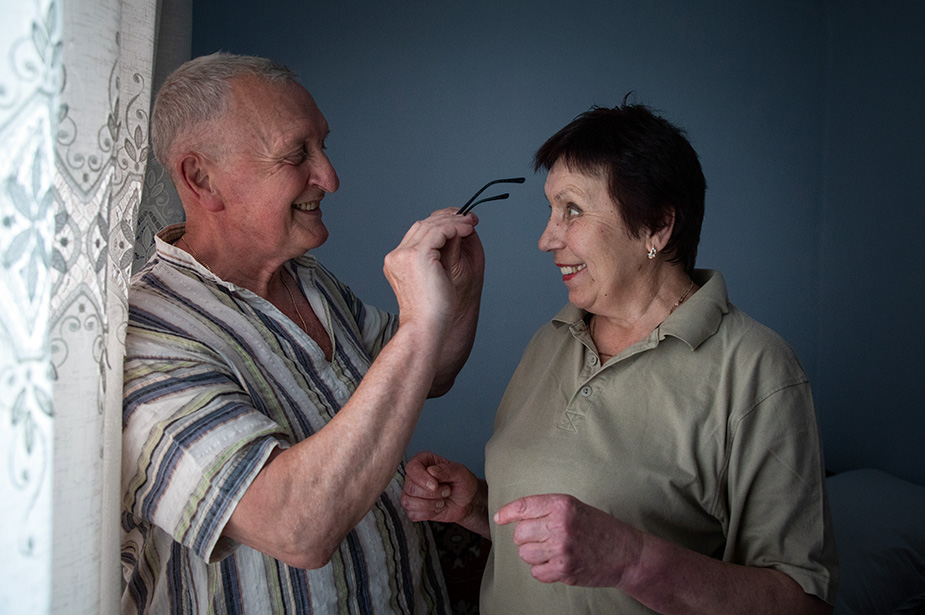
Oleksandr, who uses a hearing aid, puts a pair of glasses on his wife, Olga. © Vincent Tremeau / OHCHR
“Now I can see him and he can hear me.”
Among those who also received services are Oleksandr and his wife, Olga.
Oleksandr has a hearing disability, but he could still feel the walls and the earth shaking every time Russian forces fired missiles on Kyiv. Olga, for her part, has heart problems and recently underwent cataract surgery.
“My wife could not sleep, and I, despite having hearing problems, could feel the explosions from the bombs, so I was also awake all night,” said Oleksandr, 73.
Despite their health problems, the pair decided to flee Ukraine and moved to Moldova.
“We are here to stabilize our nerves and be calm,” Oleksandr said.
A UN Human Rights officer in Moldova identified the special needs of the two at a town hall meeting in Basarabeasca, where the couple lives. Through the program, Oleksandr received a hearing aid and Olga a pair of glasses, provided by a Moldovan NGO. The couple also gets free medicines for blood pressure.
“I had to get used to the hearing aid, but I am so happy now,” Oleksandr said.
“Now I can see him, and he can hear me,” said Olga, 66.
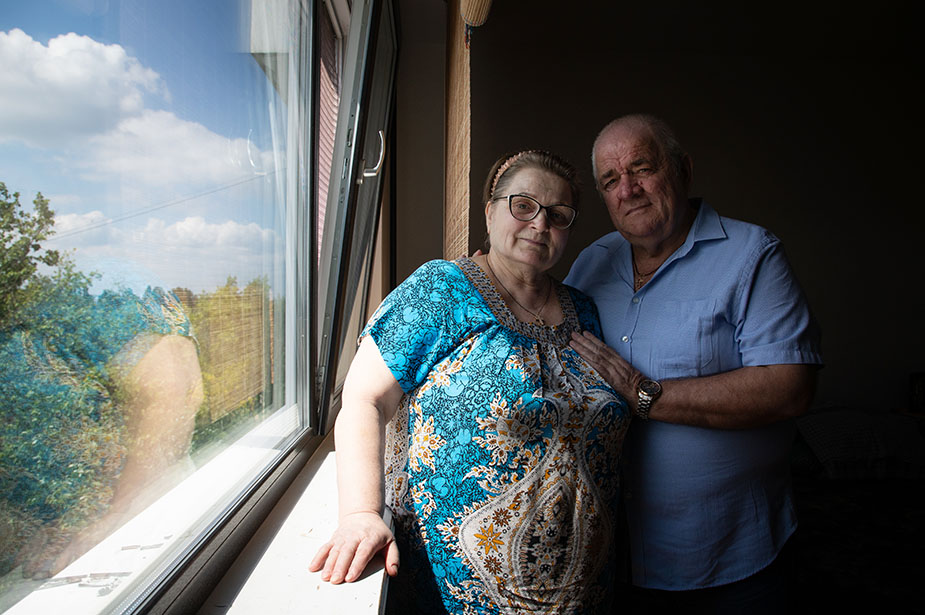
“We are grateful to Moldova, but we think of home all the time.” Polina and Oleksandr are refugees from Ukraine. © Vincent Tremeau/OHCHR
Heart problems
Polina and Oleksandr, refugees from Ukraine, live in a small, rented apartment in Chisinau. The two suffer from heart problems.
After a UN Human Rights officer met them at a government center for refugees, Polina and Oleksandr began receiving heart medication, supplied by a local NGO.
“Leaving our farm was a difficult decision,” said Polina, 67, a former school teacher, as she served kompot, a traditional homemade fruit drink. “We wanted to stay with our children and grandchildren. Now we are refugees.”
The pair recounts how they had to hide in a basement with their grandchildren for five days as their village was being shelled. In Chisinau, they feel safe, but life has not been easy. The cost of living is high. Polina and Oleksandr, who share the apartment with a grandson, worry about their housing situation, as their rental agreement expires at the end of this month.
Oleksandr, 65, tries his best to keep the family’s spirits high by singing an occasional Ukrainian folk song or buying flowers for Polina.
“I never forget to bring her flowers every May 8. That was the day of our first kiss,” said Oleksandr, a former electrician.
While the refugees are grateful for the assistance they are receiving in Moldova, all of them dream of going back to Ukraine.
Olga, who recently began rearranging furniture in the apartment to make it feel more like home, said she can’t wait to get reunited with her granddaughter, Victoria.
“I keep a picture of her close to my heart. We will go back. I have no doubt in my mind.”
SUPPORTING VULNERABLE REFUGEES
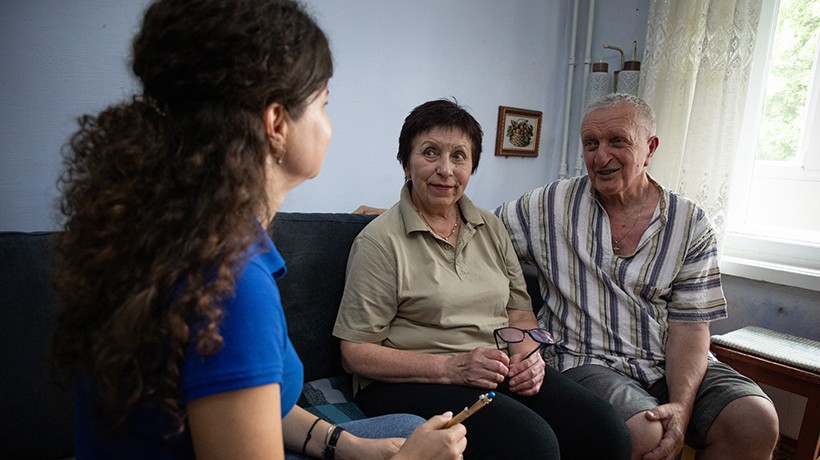
The UN Human Rights project has helped hundreds of marginalized refugees from Ukraine get better access to basic services in Moldova. © Vincent Tremeau/OHCHR
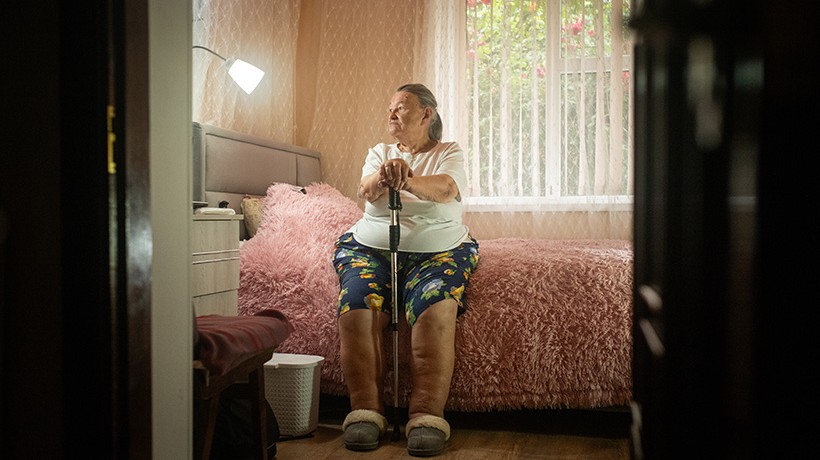
The project has supplied medicines, diapers, walking aids, wheelchairs and eyeglasses, and other assistive devices to refugees like Liubov. © Vincent Tremeau/OHCHR
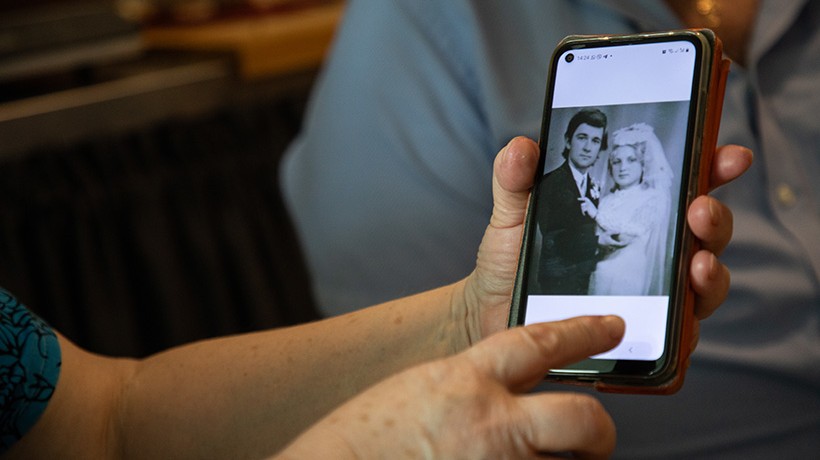
Polina and Oleksandr, refugees from Ukraine, celebrated their 50th wedding anniversary in October. Older persons are among the most vulnerable refugees. © Vincent Tremeau/OHCHR
